- Home
- slideshows
- miscellaneous
- The San Francisco housing market is so dire that people are leaving in droves - here's where they're headed
The San Francisco housing market is so dire that people are leaving in droves - here's where they're headed
10. Stockton, California

9. Salt Lake City, Utah
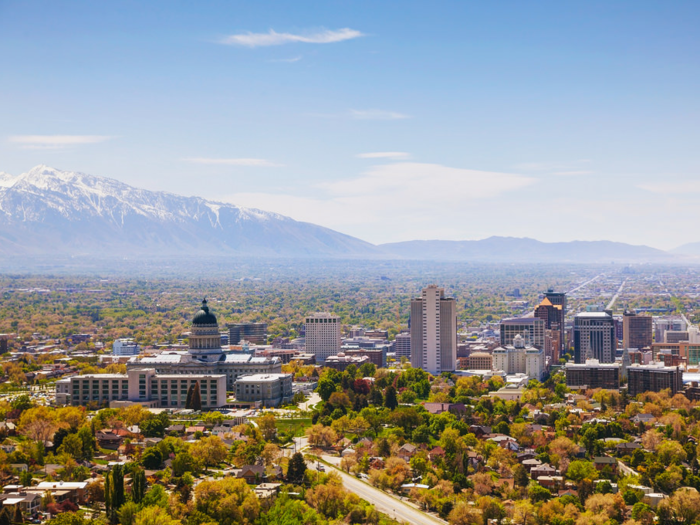
Dubbed the "Silicon Slopes," the area reaching from Salt Lake City to Provo, Utah, is filled with top tech companies, including Adobe, EA Sports, Overstock.com, and cloud software startup Domo. Tech workers who flock to Salt Lake City for its lower taxes, more flexible regulatory environment, and natural amenities may find they can actually afford a home near the office.
The National Association of Realtors reported that the salary needed to buy a home in Salt Lake City was $59,521 in the last quarter of 2017. In San Francisco, it's at least $173,783.
8. Hawaii

Tech workers are finding paradise on the Hawaiian Islands (LinkedIn was not more specific as to which islands). The ready availability of wireless internet and smartphones has made it easy for people to work remotely, even where they're surrounded by the Pacific Ocean on all sides.
The tech sector in Hawaii remains small. The state ranks 44th in net tech employment. Hawaii employed about 31,000 tech workers in 2017, which makes up just 4% of the state's total workforce.
Dr. Guy Berger, an economist who works at LinkedIn, said retirees and people working outside of the tech industry likely account for some of the migration from the San Francisco Bay Area.
7. Phoenix, Arizona
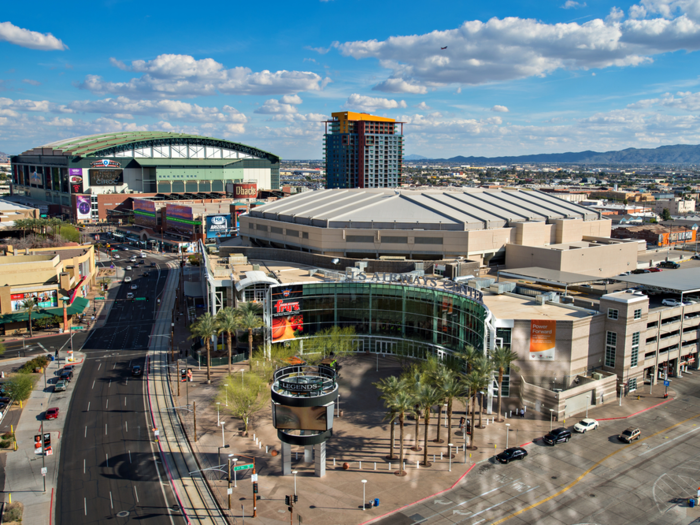
Located just a two-hour flight from San Francisco, Phoenix draws tech workers with its lively business climate, access to top talent out of Arizona State University, and proximity to Silicon Valley. The number of tech companies based in the city quadrupled between 2012 and 2017.
With a price tag of $25,000, the median-priced home costs a fraction of a typical house in San Francisco.
6. Las Vegas, Nevada

The Las Vegas startup scene has blossomed with the increasing local presence of large, national companies. Tony Hsieh, CEO of online shoe retailer Zappos, an Amazon subsidiary, has pumped at least $350 million of his own money into revitalizing downtown Las Vegas.
While cities like Los Angeles and Seattle draw tech workers looking to move into slightly more affordable tech hubs, Berger, the LinkedIn economist, said Las Vegas attracts people making a "pure cost-of-living play." The city's median-priced home costs $258,000, according to Redfin.
5. Austin, Texas
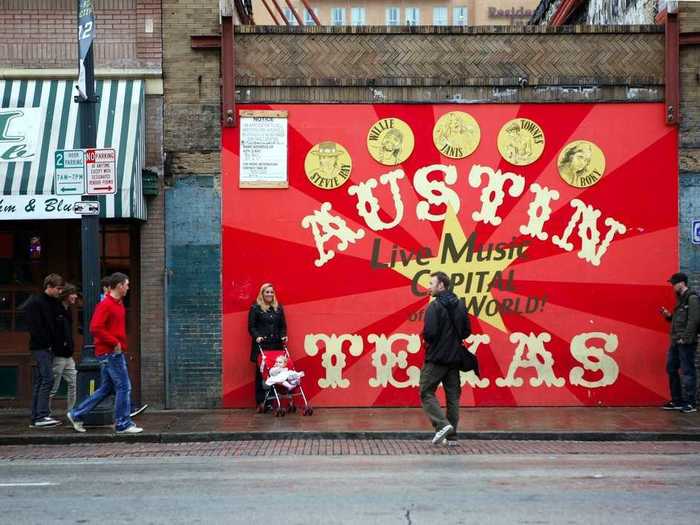
Austin, which has offices for Dell, Apple, and Amazon, features a diversity of industries that has made the capital city a magnet for San Franciscans seeking culture outside of tech.
"The 4-Hour Workweek" author Tim Ferriss moved to Austin in 2017 after spending decades as an entrepreneur and investor in San Francisco.
Ferriss recently said that in Austin, he found a "very young community and a medley of feature film, music — certainly tech if I need to scratch that itch — but there were more perspectives that I could borrow from and learn from than I found readily available in my circles in Silicon Valley."
4. Denver, Colorado
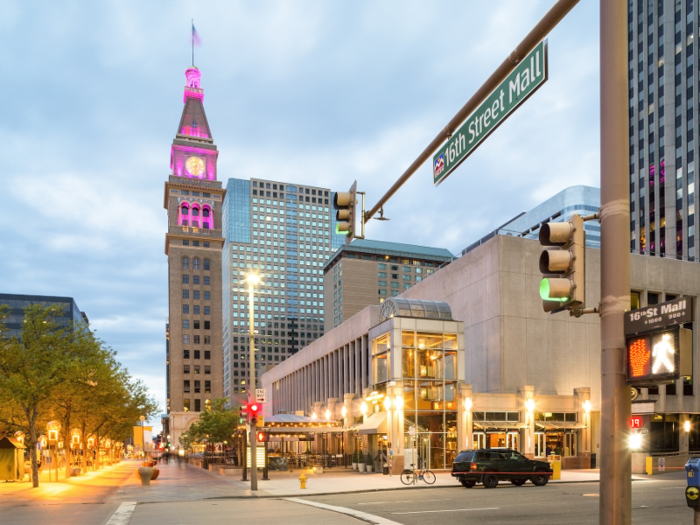
In many ways, Denver is like San Francisco, but better. The Mile High City — named for its elevation and not its legendary marijuana festivals — offers a bustling downtown, more than 5,000 acres of parks and trails, and a new light rail system that puts California's BART (Bay Area Rapid Transit) to shame. Eighty-five miles of paved bike trails connect the entire metro area.
In April, a coalition of 10 Colorado-based tech companies announced a $500,000 campaign called "Pivot to Denver," which encourages tech talent to leave Silicon Valley for Denver.
3. Sacramento, California
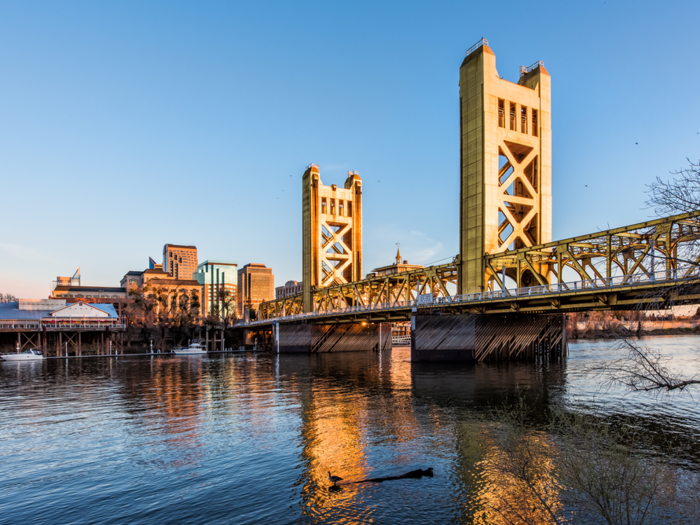
Sacramento, the capital city of California, is becoming a natural destination for tech workers seeking refuge from San Francisco's housing market. Located about a two-hour drive from Silicon Valley, some migrants might even keep their high-paying jobs in the city and commute.
Cities like Sacramento and Stockton weren't always considered part of the Bay Area commuter range, according to Berger. The housing affordability crisis changed that.
"At this point, people are saying, 'I'm going to keep working in the Bay Area — maybe work from home a few days a week, work remotely, or endure brutal commutes," Berger said.
2. Portland, Oregon
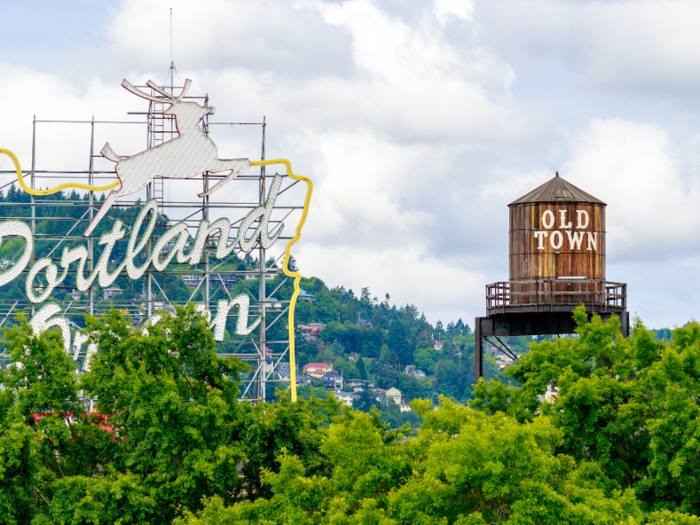
Locally known as the "Silicon Forest," Portland's tech sector was once growing faster than its counterpart in Silicon Valley. While job growth has leveled off, Portland employs about 30,000 tech workers, who work mostly in semiconductor and electronic component manufacturing — Intel is based in the region.
The city of Portland and nearly two dozen of its largest tech companies created a pledge called "TechTown" that aims to cultivate workplace diversity in order to grow the industry.
1. Seattle, Washington
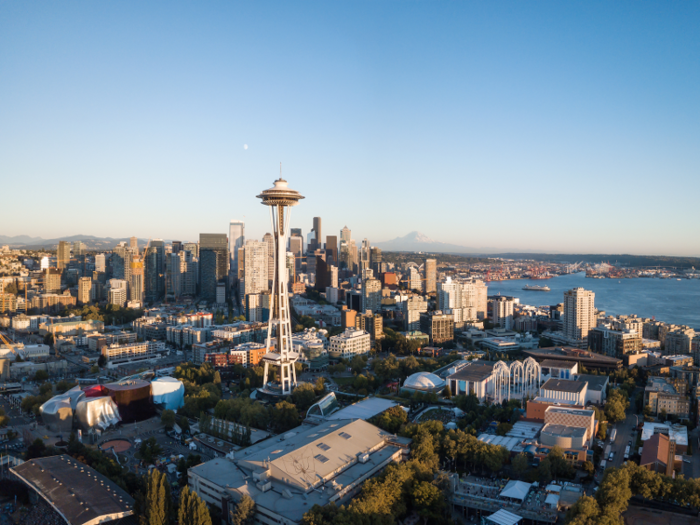
"If you think of all these cities and just think, literally, 'What is the closest substitute to the Bay Area at a slightly lower cost?' Seattle tops the list," Berger told Business Insider.
Seattle — a slightly smaller and less expensive city than San Francisco — is home to both Microsoft and Amazon, both of whom attract top talent to the region. It's also the birthplace of Starbucks, and home to a thriving indie art and music scene.
Deciding between San Francisco and Seattle?
Check out our guide on how the two major tech hubs compare.
Popular Right Now
Popular Keywords
Advertisement